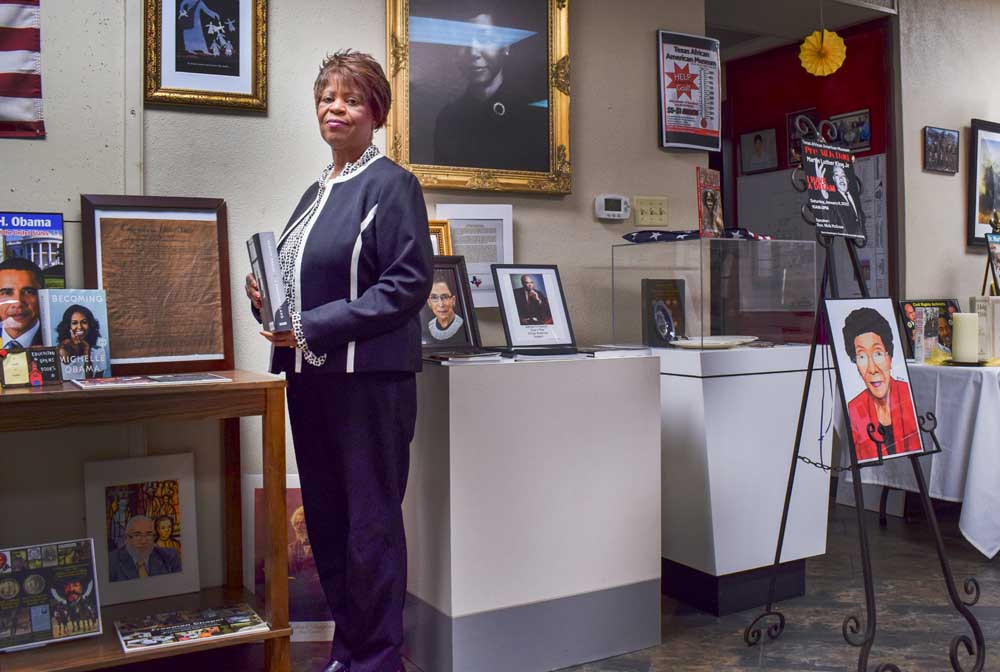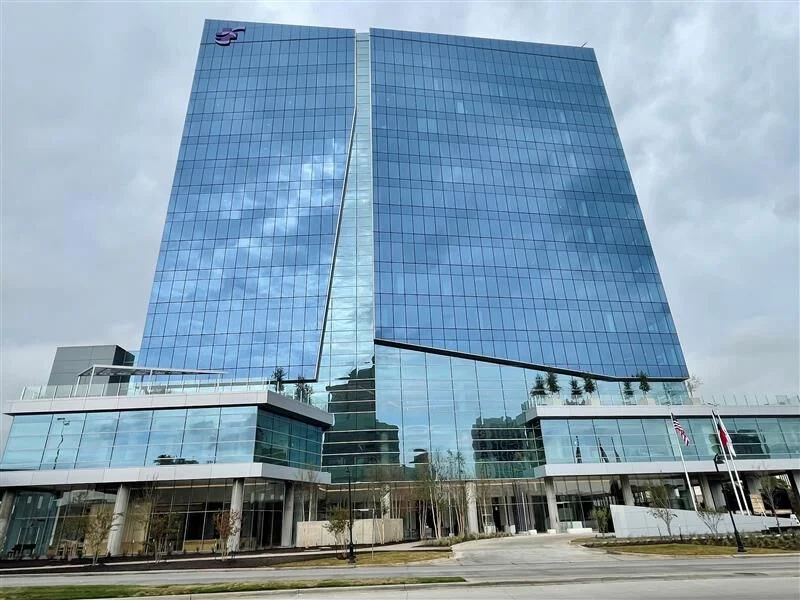Tyler community figures share stories to keep history alive
Published 5:45 am Sunday, February 27, 2022

- DSC_2695.JPG
History isn’t something that should be forgotten, a group of Tyler’s Black community leaders said.
By recording history in books and reliving struggles faced during the Civil Rights Era and the years that followed, a group of Tyler’s senior Black leaders feel that sharing stories keeps history alive — and from repeating itself.
Gloria Washington
Gloria Mays Washington was a gospel radio and newspaper reporter in Jasper in 1998 when an “atrocity” occurred.
James Byrd, who lived his entire life facing discrimination, was dragged to death after he was chained by his ankles to the back of a pickup by three white men convicted in his death, John William King, Lawrence Russell Brewer and Shawn Allen Berry.
A phone call from the local police department notified Washington and her colleagues that the remains of a body had been found at Huff Creek.
It was later revealed the remains would be those of Byrd.
“He was my classmate. He was my friend. I knew him and his family very well,” Washington said.
During what she calls “a very frightening time for people in Jasper,” Washington broke the news and followed the case until a decision ruled Byrd’s murder as a hate crime. Because of her work in reporting the hate crime that made national news, a movie was made, where Washington was portrayed as a reporter by Miriam Carvell.
“I survived. That’s the good part. During segregation, I survived. Through integration, I’ve also survived,” Washington said about her time in Jasper.
As a girl, Washington said she was dehumanized. She said it felt degrading when she walked into facilities that required African Americans to walk in through the back door or drink at separate water fountains.
She rode in separate school buses than her white counterparts. When desegregation finally took place, Washington said it hurt but also helped the Black community.
“Integration separated a lot of us. It helped a lot of us because we could get the same education, we had access to many of the things the Caucasian race had. We have come a long way but we have a long way to go,” she said.
Washington said her mission has always been to help the people of her community be more productive.
In Jasper, she began the first Martin Luther King Jr. march and today, she is the director of the Texas African American Museum, a way she gives back to her community, she said, and also serves on the board of the Empowerment Community and Development Corporation. She is also executive director of the Heart for Hearts Mission and she is owns a local floral shop.
“We’re all a part of history. History is made every day — not just (Black History Month),” Washington said.
She added that when she walks into the doors of the TAAM, she feels the presence of her ancestors.
“I tell their story. Their story continues to live on and that has grown inside of me,” Washington said, adding that she feels her ancestors tell her to keep telling their stories.
Larry Wade
In the ninth grade, Tyler native Larry D. Wade witnessed a historic moment he would remember for the rest of his life — the desegregation of schools.
He was a freshman at Boulter Junior High School when, after many years, U.S. District Judge William Wayne Justice issued the order to desegregate Texas public schools.
Years following the 1954 historical trial of Brown v. The Board of Education, in which the U.S. Supreme Court ruled racial segregation in public schools violated the 14th Amendment, several schools in the South didn’t actually desegregate until the early 1970s, including Tyler.
It was 1970 when Athens native Justice ordered East Texas schools to stop ignoring integration and to obey the law. According to an article by Texas Monthly in 2006, ”the good people of Tyler were not pleased.”
Then, Wade said the most difficult situations to experience were the moments of prejudice and discrimination of his people.
“Separate water fountains, separate toilet facilities, everything was segregated. That’s why we have these abandoned Black cemeteries, because they buried us, from birth to death, you were segregated. You were separated. Even neighborhoods and communities were segregated,” Wade said.
As a boy, Wade often questioned why some streets had dead ends, with one side housing Black people and the other, White people.
Desegregation didn’t come easy. According to Wade, in the time leading up to Justice’s desegregation order, there was much protest and turbulence across the nation and locally.
Around that time, Wade was entering John Tyler High School. He witnessed classes merge with what was the last class to be under the segregation system, the classes of 1969 and 1970. Then, students attended one of the city’s two high schools, then-John Tyler High in the north side of the city and then-Robert E. Lee High School in the south.
Many would consider this a move in the right direction, but Tyler’s Black population was hurting as the national movement of many Black schools closing hit home, Wade said. Emmett Scott Junior High was closed.
“(It) angered a lot of the people in the Black community, naturally,” said Wade. “Years of great graduates had come out of these schools. They were proud of their heritage, coming out of these schools.”
As students came together in the city’s two high schools, they learned to get along quite well. Wade said this was most likely a result of the turbulence seen before. Waters were calm. How? Sports, Wade said.
As a senior, Wade said John Tyler High’s football team won a state championship. The predominantly white school, now with a large percentage of Black students, and a small population of Hispanic students, helped the city, schools and races come together.
Slowly but surely, Wade began seeing those streets that had formerly been dead ends, now be connected between Black and White neighborhoods.
More recently, Wade witnessed the name change of then-Robert E. Lee High School, where he was a part of protests to advocate for the renaming. As an educator, a human being and as a Black person, he said, he felt a responsibility to advocate.
“For you to name a school in Tyler after him, the Confederate General leader, it’s saying a lot about this city. And then, to go that long for the name not to be changed and to be fought to be changed,” said Wade. He said he was proud to see the end of so many years of “a school that promoted the old confederacy.”
Flashback to growing up in Tyler, Wade recalled his father being reluctant to drive his new car to work. “We had to live with that,” he said.
On one side, there was the sense of pride. On the other, Tyler’s Black community was “mistreated, misused and abused,” Wade said. “But on the other side, you’re developing a strong sense of family unity, racial unity, community pride and racial pride in who you are.”
From that foundation, Wade, now a substitute educator at Tyler-district schools, encourages his students to learn their history, aside from what’s in textbooks.
Wade, former principal, counselor and educator, learned his family’s history over a number of years and organized family reunions on both sides of his parents’ families.
Today, he restores abandoned Black cemeteries and pastors his church, while also taking time to interview elderly Black community members to document their history in his National African American Historical Society.
Rodney Atkins
Throughout the years, books have kept history of many events alive, and continue to do so for many generations. Pastor Rodney Atkins, Illinois native but current Tyler resident, has been an advocate for keeping trace through books and has written books about Tyler.
Besides assisting with recording history of the city, Atkins was also the first Black librarian at the Tyler Public Library in 1981 where he was responsible for everything checked in, returned, and media services during his first year in the position.
“It was an exciting time for me because it was my first time having as many employees under my supervision,” he said.
During the second year of his career at the Tyler library, Atkins started using his platform as a minority and came up with the idea of organizing a citywide celebration of Black History Month that was a yearly celebration in Tyler for almost a decade.
“For nine years straight from beginning of the Black History Month sponsored by the library, it captivated an audience and participation of every predominantly Black church in Tyler, every social club, fraternity, and sorority,” he said.
Atkins continued to work at the Tyler Public Library for 25 years and is currently the library director at Jarvis Christian College, a position he has held for 13 years.
Atkins feels it’s crucial to record history through books. He has written seven books, one being ‘Index to African American Life in Tyler.’
Although Atkins is not from East Texas, he emphasized how important it was for him to record the history of Tyler.
“It’s very important to Tyler to have this information. I started early recording history. A lot of information that you can’t find anywhere else, you can find it in the books I researched from years ago. Primarily because those persons were still alive when I started recording,” he said. “The recording of history is the most important element of society.”
During his research and experiences, Atkins is honored to have met and heard the stories of Black community members.
“It was a beautiful experience because I got the opportunity to meet a lot of the educators who started out teaching during segregation and that was a jewel of an experience, to get an opportunity to hear their stories, learn from them and to even worship with them in church,” he said.
Throughout the years, Atkins has continued to love the city of Tyler and is grateful for the growth among the Black community.
“I thank God for integration because it has given us so many opportunities. If you see the growth spectrum of Tyler today, you see that you have representation in the school boards, representation in the city council, with the county commissioners and if you even look in the medical field you have African American doctors,” Atkins said. “Tyler has moved in the right direction through the years in the integration movement.”
To read the books written by Atkins, you can find revised books in the New Life Zou book store in Tyler across from the Tyler High School campus.






